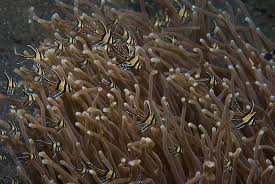
Throughout Chinese history, the imperial palace has been more than just the residence of the emperor. It has also been a central hub for diplomatic relations, where foreign emissaries, envoys, and dignitaries came to negotiate treaties, forge alliances, and discuss matters of mutual interest. The grand events held in the palace, such as royal banquets, receptions, and celebrations, provided an opportunity for diplomatic interactions that were crucial for the empire’s foreign relations. This article explores how the events within the imperial palace played a pivotal role in shaping China’s diplomatic relations, influencing not only its immediate neighbors but also distant powers.
1. The Role of the Imperial Palace in Foreign Diplomacy
The imperial palace in China served as the focal point of the emperor’s authority. Not only was it a symbol of power and control, but it was also the center of diplomacy. Foreign envoys and ambassadors from across Asia and beyond would visit the palace, presenting their tributes, seeking protection, or negotiating treaties. The palace became a place of both grandeur and ceremonial exchange, where diplomacy and statecraft were conducted through elaborate rituals.
In the early periods, such as during the Han Dynasty (206 BCE – 220 CE), diplomatic events at the palace were essential for maintaining relationships with neighboring kingdoms. During the Tang Dynasty (618–907 CE), the Chinese emperor’s court became a major diplomatic player on the world stage. The Tang court welcomed foreign delegations, including those from Persia, the Byzantine Empire, and Central Asia, making the palace a site of global diplomatic activity. These early exchanges were a precursor to the more complex diplomatic events held later in Chinese history.
Over the centuries, the palace maintained its role as a site for high-stakes diplomatic interaction, where foreign leaders and diplomats were treated with great ceremony. The scale and nature of these events varied, but the underlying importance of using the imperial palace as a tool for managing foreign affairs remained constant.
2. Tributary System and Formal Ceremonies
One of the defining features of China’s foreign relations for much of its history was the tributary system, which established China as the dominant power in East Asia. Under this system, neighboring states or tribes would send tribute to the emperor, recognizing his supreme authority, in exchange for military protection, trade benefits, and the formal acknowledgment of their sovereignty.
The tribute missions were formal events that often took place within the walls of the imperial palace. These missions were highly ritualized, with elaborate ceremonies designed to demonstrate the emperor’s power and the relationship between the tributary state and the Chinese empire. Foreign diplomats were required to present gifts, often elaborate and symbolic, such as rare animals, precious metals, and exotic goods. In return, they would receive lavish gifts and royal blessings from the emperor.
These events were meticulously choreographed to reinforce the hierarchical nature of Chinese diplomacy. The foreign envoys were required to perform specific rituals, such as the kowtow, a deep bow in which they would touch their foreheads to the ground in submission to the emperor. The emperor, in turn, would acknowledge their submission by granting them audiences, gifts, and formal recognition of their sovereignty. The tribute missions, therefore, served as a form of ceremonial diplomacy, reinforcing China’s position as the dominant power in the region.
3. Banquets and Receptions: Avenues for Diplomatic Engagement
Banquets and receptions were some of the most important events in the imperial palace that facilitated diplomatic relations. These social gatherings allowed foreign dignitaries to interact with the emperor, his officials, and other members of the court in a less formal setting, enabling them to build rapport and foster goodwill.
For example, during the Tang Dynasty, the palace held regular banquets that brought together officials, scholars, and foreign ambassadors. These events were often marked by poetry readings, music, and the performance of cultural rituals that showcased the emperor’s patronage of the arts. The presence of foreign envoys at these banquets allowed them to experience firsthand the cultural grandeur of the Chinese court, reinforcing the prestige of the empire.
The Ming and Qing Dynasties continued the tradition of hosting grand banquets for foreign diplomats. These banquets were not only social events but also opportunities for the emperor and his advisors to engage in political discussions with foreign representatives. Diplomatic negotiations could be carried out subtly during these occasions, with the exchange of gifts and the offer of royal favor serving as a way to solidify political alliances or ease tensions.
4. Marriage Alliances: Political Diplomacy Through Court Events
Marriage alliances were another key aspect of diplomacy within the imperial palace. Throughout Chinese history, the emperor often married daughters of powerful foreign rulers as a means of strengthening political ties and securing alliances. These royal marriages were highly ceremonial events, taking place within the palace, and were seen as both personal unions and diplomatic acts.
One notable example of this practice occurred during the Tang Dynasty when Emperor Taizong (r. 626–649 CE) married the daughter of the Tibetan king. This marriage was arranged to solidify relations between the Tang Empire and Tibet, and the marriage ceremony itself took place in the imperial palace, accompanied by feasts and grand festivities. The marriage was not only a political alliance but also a symbolic gesture of goodwill and mutual respect between the two powers.
Similarly, the Ming Dynasty saw the use of marriage alliances to strengthen ties with neighboring countries such as Korea and Vietnam. The emperor’s selection of consorts from foreign courts was not only a means of consolidating power but also an avenue for ensuring peace and cooperation between China and its neighbors.
The Qing Dynasty, with its emphasis on maintaining control over its vast empire, also utilized marriage alliances to solidify relationships with the surrounding regions. The imperial court’s ability to manage these alliances through marriage was an essential tool in navigating the complex web of regional politics.
5. Festivals and Celebrations: Showcasing Imperial Power
Festivals and celebrations within the imperial palace also played a significant role in diplomacy. The grand court celebrations, particularly those surrounding the lunar new year or the emperor’s birthday, were often used as occasions to invite foreign dignitaries and display the wealth and power of the imperial family. These events were an opportunity to showcase China’s cultural and political might on the global stage.
During the Ming and Qing Dynasties, court festivals often featured elaborate performances, including traditional Chinese opera, music, and theatrical plays that conveyed imperial values and celebrated the emperor’s divine right to rule. Foreign envoys who were invited to these events were treated to spectacular displays of Chinese culture, reinforcing the notion that China was a cultural and political leader in East Asia.
Such festivals also allowed the emperor and his officials to forge and strengthen diplomatic relationships. By hosting foreign envoys at these events, the emperor demonstrated his magnanimity and ability to maintain peace and stability in the region. These grand celebrations were not only about entertainment but also served as a form of soft power, projecting China’s influence across the world.
6. The Role of Eunuchs in Diplomatic Relations
Eunuchs played a crucial role in facilitating diplomatic relations within the imperial palace. As trusted members of the emperor’s inner circle, eunuchs acted as intermediaries between the emperor and foreign dignitaries. Their familiarity with court rituals and their proximity to the emperor allowed them to negotiate and coordinate diplomatic events on his behalf.
Eunuchs often served as the first point of contact for foreign envoys arriving at the palace. They would ensure that the foreign diplomats adhered to the palace’s strict protocols, arrange meetings with the emperor, and manage the details of ceremonies and banquets. Their influence in diplomatic affairs was particularly evident during the Ming and Qing Dynasties, when they were deeply involved in the empire’s political and foreign relations.
Though eunuchs were often seen as servants, their close ties to the emperor and their political acumen allowed them to wield significant power in managing the court’s diplomatic affairs. This dynamic gave the eunuchs a unique role in shaping the course of foreign relations, as they were often the ones to communicate with foreign envoys, present them with gifts, and negotiate treaties.
7. The Decline of Court Diplomacy and the End of the Imperial System
As the imperial system declined in the late Qing Dynasty, the role of the imperial palace in foreign diplomacy diminished. The fall of the Qing Dynasty in 1912 marked the end of the traditional form of court diplomacy, and China transitioned into a republic. However, the legacy of diplomatic events held in the imperial palace continued to influence Chinese foreign relations.
The rituals, ceremonies, and traditions of diplomacy in the palace laid the groundwork for China’s approach to foreign relations in the modern era. Although China’s foreign relations would eventually move into the realm of formal treaties and negotiations outside of the palace walls, the symbolic importance of diplomacy as a tool of statecraft continued.
8. Conclusion: The Legacy of Diplomatic Court Events
The events that took place within the walls of the imperial palace were much more than social occasions—they were vital to shaping China’s diplomatic identity. Through tribute missions, banquets, marriage alliances, festivals, and the role of eunuchs, the imperial court became a vital center for diplomacy, where foreign relations were conducted with great care and formality. These court events not only represented the emperor’s power and status but also played a key role in fostering relationships with neighboring powers, securing alliances, and maintaining peace.
As China moves forward in its global role, the traditions of court diplomacy continue to have an influence on the nation’s foreign policy. The legacy of these court events serves as a reminder of how diplomacy has always been a cornerstone of Chinese governance, from the imperial era to the present day.









